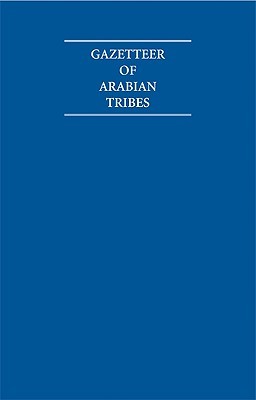- Bible
- Read the Bible
- Bible Versions
- Verse of the Day
- Reading Plans
- Verses by Topic
- Books of the Bible
- Bible Images
- Study
- Commentaries
- Concordances
- Dictionaries
- Encyclopedias
- Sermons
- Bible Atlas & Maps
- BP Wiki
- Devotionals
- Today's Devotionals
- Light of the World
- All Devotionals
- Inspirational Quotes
- More
- Picture Quotes
- Videos
- Inspirational
- Bible Study
- What The Bible Says
- Bible Q&As
- Daily Bread
- Bible by Genre
- Bible Stories
- Random Bible Verse
- Community
- Store
Gazetteer of Arabian Tribes 18 Volume Set
by Richard Chenevix Trench
The Gazetteer provides a magnificent collection of historical descriptions of Arabian tribes from British archival sources in the 19th and 20th centuries. Some 745 tribes are included, representing most of the major clans and families in the Arabian peninsula. From Iraq and Syria the geographic coverage includes Jordan, Saudi Arabia and the Gulf States to Oman, the Hadhramaut and Yemen. The records show territories and nomadic routes, tribal relations and allegiance, military strength, personalities and modern influence. These volumes provide the broadest array ever assembled of English language historical references concerning approximately 745 tribes, tribal confederations and clans in the Arabian peninsula. It is likely to remain the definitive research work for tribal history. From the eyewitness accounts of the Hijaz tribes riding into battle in 1917 to a social and political breakdown of the Jaburi tribe of Iraq, this gazetteer is an important resource to the study of Arab history.
BUY NOW
Hardcover, 2000 pages
Published November 30th 1996 by Archive Editions
© 2025 Bibleportal.com All rights reserved.

1807-1886
Richard Chenevix Trench was an Anglican archbishop and poet. In 1851 he established his fame as a philologist by The Study of Words, originally delivered as lectures to the pupils of the Diocesan Training School, Winchester.
In 1856 Trench became Dean of Westminster, a position which suited him. Here he introduced evening nave services. In January 1864 he was advanced to the post of Archbishop of Dublin. Arthur Penrhyn Stanley had been first choice, but was rejected by the Irish Church, and, according to Bishop Wilberforce's correspondence, Trench's appointment was favoured neither by the prime minister nor the lord-lieutenant. It was, moreover, unpopular in Ireland, and a blow to English literature; yet it turned out to be fortunate. Trench could not prevent the disestablishment of the Irish Church, though he resisted with dignity. But, when the disestablished communion had to be reconstituted under the greatest difficulties, it was important that the occupant of his position should be a man of a liberal and genial spirit.
... Show more